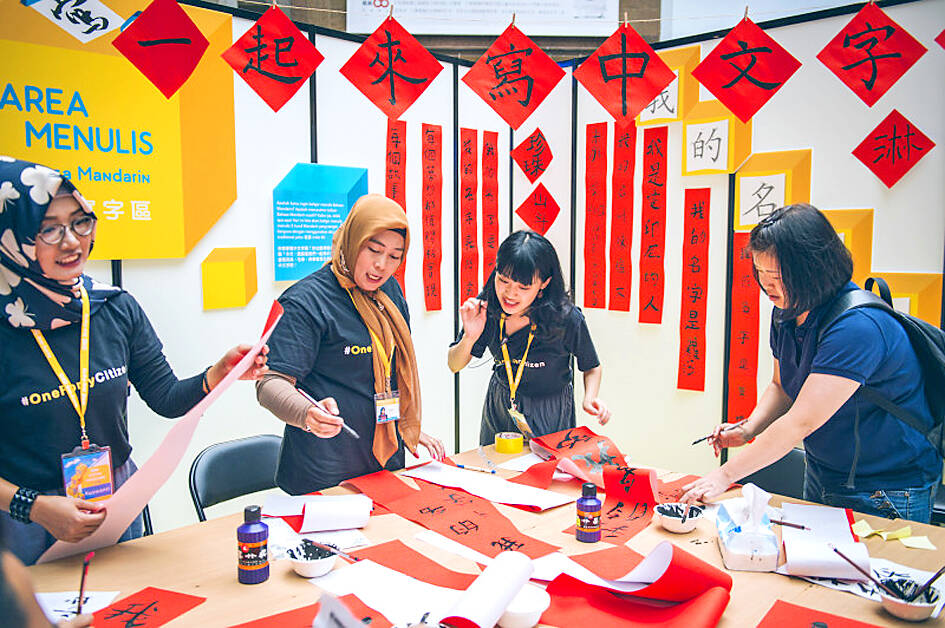-
By Wu Po-hsuan /
Staff reporter
One-Forty, a non-profit organization that aims to support Southeast Asian migrants in adapting to Taiwanese families, said this year it has helped many migrant domestic workers write Lunar New Year spring couplets and learn holiday customs.
Fatma, a 38-year-old Indonesian domestic worker who has worked in Taiwan for 10 years, said she remembers taking care of an elderly man in Yilan County in the first few years.
She had gotten along with his family, and would enjoy a Lunar New Year’s Eve reunion dinner together, she said.

Photo courtesy of the One-Forty
During the Lunar New Year holiday, many would come to the elderly man’s home to play mahjong and chat, she said, adding that she learned to say the greeting, gong xi fa cai (恭喜發財).
She said she also received a red envelope from the family.
Fatma said she found a new employer after the elderly man passed away, but she still keeps in contact with his family.
“I see his family as my family in Taiwan,” she said.
One-Forty founder Kevin Chen (陳凱翔) said the organization was aimed to provide education for Southeast Asian migrant workers, and that most of the participants are in-home migrant caregivers and long-term care migrant workers.
To help them adapt to society and live with Taiwanese families, the organization provides free Chinese language and Hoklo (commonly known as Taiwanese) lessons, he said.
Lessons also include Taiwanese customs for the Lunar New Year, such as about family get-togethers, spring cleaning and red envelopes, so they can better communicate with the family during the holiday, Chen said.
Fatma said that she had been asked not to sweep the floor or throw out garbage during the Lunar New Year holiday, and that she later learned that it is part of Taiwanese custom.
Indonesians also have get-togethers during the New Year. They would eat special dishes such as Nasi Tumpeng (turmeric-tinged yellow rice piled high into a cone), rendang (a spicy beef dish), klepon (a glutinous rice sweet snack coated in grated coconut) and pisang goring (fried banana), she said.
They also have greetings, but they do not have a rule about not cleaning the house during the holiday, she added.
Chen said many in-home migrant caregivers and long-term care migrant workers have been caring for elderly people for a long period of time, and might even be their closest companion.
However, long-term caregiving comes with much pressure and hard work, so employers are advised to give migrant domestic workers days off, show them consideration, give them red envelopes and express their appreciation to them from time to time, he said.
Sometimes migrant domestic workers, who left their country to work in Taiwan, might also feel homesick when they see their employers’ family reunions during the Lunar New Year holidays, Chen said, urging employers to show them more empathy and care.
Migrant workers also have their own important holidays, he said.
For example, Eid al-Fitr is one of the most important holidays celebrated by Muslims, so employers are advised to give their Muslim employee a day off for them to get together with friends, enjoy native cuisine or participate in celebrations, Chen said.
#OneForty #helps #migrant #workers #adapt #families









Leave a Reply